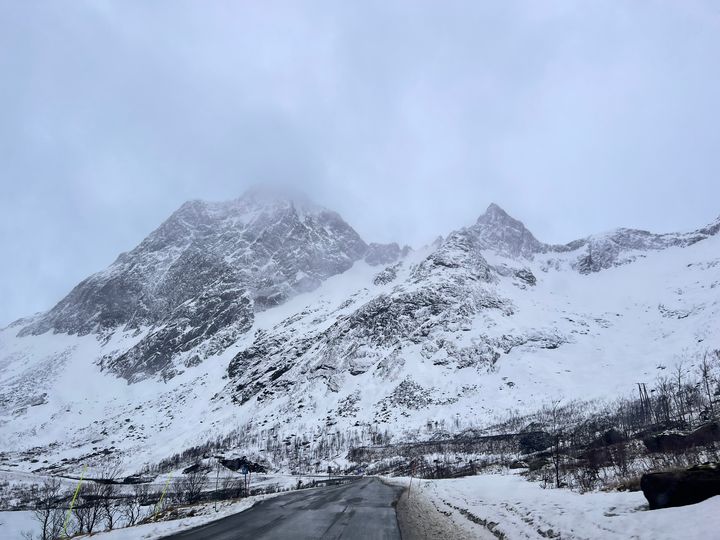QT 12/03/2025 Wed. Isaiah 23. Use and Misuse of Wealth. 财富的使用和滥用.

QT 12/03/2025 Wed. Isaiah 23. Use and Misuse of Wealth.
READ http://www.esvbible.org/isaiah23
How can we reconcile the message of doom to Tyre (23:1–12) with "Her merchandise and her wages will be holy to the LORD" (23:18)?
Isaiah 23:8–9
[8] Who has purposed this
against Tyre, the bestower of crowns,
whose merchants were princes,
whose traders were the honored of the earth?
[9] The LORD of hosts has purposed it,
to defile the pompous pride of all glory,
to dishonor all the honored of the earth. (ESV)
Tyre (23:1) and Sidon (23:4) had the Mediterranean Sea for trade and transport. Their economic abundance, like wealth today, had resulted in strong revenue (23:3) and pompous pride (23:9). When self becomes central, it becomes dangerous.
The prophet warned Tyre and Sidon that far away, even the Chaldeans faced conquest and ruin (23:13). Tyre and Sidon should have learned this object lesson since they were much smaller in size. Alas, the Persians and the Greeks conquered Tyre subsequently.
Isaiah 23:18 Her merchandise and her wages will be holy to the LORD. It will not be stored or hoarded, but her merchandise will supply abundant food and fine clothing for those who dwell before the LORD. (ESV)
The chapter closes with the above verse, which seemed to contradict Deuteronomy 23:18 regarding immoral wages being prohibited from use as offering. But this "prostitution" might just have been a figure of speech for economic trade and doing business (both of which are neutral as far as morality is concerned) without including God's purpose.
REFLECTION: If our income from our jobs and business are set apart for God's use, this would be "holy to the LORD", don't you agree? If wealth leads us away from worship service, fellowship and the study/living out of His Word, this becomes misuse of God's blessings, don't you agree?
Isaiah continued to point his readers to God, to allow God to deploy the wealth which they have laboured hard to accumulate. Therefore, if we should not trust in the glory of other nations (Isaiah 13–14), political alliances (Isaiah 14—15) nor human wisdom (Isaiah 19–20) nor their visions (Isaiah 21–22) or wealth (Isaiah 23), who should they trust? The answer is clear. The LORD.
QT 12/03/2025 星期三. 以赛亚书 23 财富的使用和滥用
阅读 http://m.bbintl.org/bible/ncv/isa/23
我们如何将推罗的厄运信息(23:1-12)与 “她的货物和工价都要归耶和华为圣”(23:18)相协调?
以赛亚书 23:8-9 谁策划这事来攻击推罗呢?它本是赐人冠冕的城,它的商人是王子,它的商贾是世上的尊贵人。9 这是万军之耶和华所定的旨意,要凌辱那些因荣美而有狂傲,使地上所有的尊贵人被藐视。
推罗(23:1)和西顿(23:4)拥有地中海的贸易和交通。他们经济上的富足,就像今天的财富一样,导致了强大的收入(23:3)和浮夸的骄傲(23:9)。当自我成为中心时,就会变得危险。
先知警告推罗和西顿,在遥远的迦勒底人也面临着征服和毁灭(23:13)。推罗和西顿本应吸取这个教训,因为他们的规模要小得多。唉,后来波斯人和希腊人征服了推罗。
以赛亚书 23:18 它的货财和所得的利益要分别为圣归给耶和华,必不会积聚或储藏起来;因为它的货财必归给那些住在耶和华面前的人,使他们吃得饱足,穿得漂亮。
本章以上述经文结束,它似乎与申命记 23:18 中关于禁止将不道德的工资用作祭品的规定相矛盾。但这个 “娼妓 ”可能只是经济贸易和做生意的比喻(就道德而言,这两者都是中性的),并不包括上帝的目的。
反思:如果我们的工作和生意收入被分别出来为神所用,这就是 “归耶和华为圣”,你同意吗?如果财富使我们远离敬拜、团契和学习/活出神的话语,这就是滥用神的祝福,你同意吗?
以赛亚继续把他的读者引向神,让神来使用他们辛辛苦苦积累的财富。因此,如果我们不应该相信其他国家的荣耀(以赛亚书 13-14 章)、政治联盟(以赛亚书 14-15 章)、人的智慧(以赛亚书 19-20 章)、异象(以赛亚书 21-22 章)或财富(以赛亚书 23 章),那么他们应该相信谁呢?
答案显而易见:耶和华。


